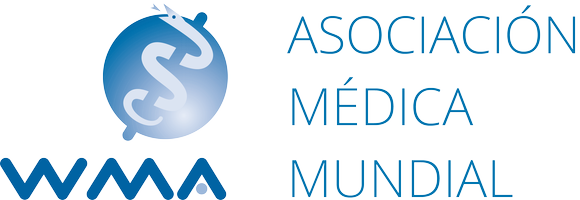WMA 12.8 rheumatic fever
Copiar PDF
THE WORLD MEDICAL ASSOCIATION, INC.
L’ASSOCIATION MEDICALE MONDIALE, INC
ASOCIACION MEDICA MUNDIAL, INC
Centre International de Bureaux
Immeuble A «Keynes» Website : www.wma.net Postal Address :
13, chemin du Levant Telephone : (33) 4 50 40 75 75 Boîte Postale 63
01210 FERNEY-VOLTAIRE Fax : (33) 4 50 40 59 37 01210 FERNEY-VOLTAIRE Cedex
France E-mail address : wma@wma.net France
71st
World Health Assembly
12.8 Rheumatic Fever and Rheumatic Heart Disease
Honourable Chairperson, Distinguished Delegates,
Thank you for the opportunity to speak on behalf of World Medical Association, which represents
more than 9 million physicians worldwide.
Thank you for the opportunity to speak on behalf of World Medical Association (WMA), which
represents more than 9 million physicians worldwide.
We welcome the report on Rheumatic Fever (ARF) and Rheumatic Heart Disease (RHD).
It has been shown that ARF and RHD are more prevalent in rural areas and urban slums, but this
likely reflects other risk factors, such as greater household crowding due to low socioeconomic
status or limited access to medical resources. There is also a potential link between insufficient
nutrition in childhood and ARF.
It’s time for the WHO to request coordinated action to offer each child good health. This includes:
● Adequate nutrition for proper growth, development and long-term health¸
● Access to quality education for girls and boys from early age. ·
● Access to high quality health care, including health promotion, recommended immunization,
drugs & dental health
As noted, rheumatic heart disease disproportionately affects girls and women. It is unclear whether
this is due to greater susceptibility to developing autoimmune responses following S. pyogenes
infection, or whether it is caused by social factors such as involvement in child-raising combined
with reduced access to primary and secondary prevention regimens.
We know that women and girls worldwide have been suffering increasing violations of their human
rights. These violations often arise from historically based gender bias where women and girls are
restricted in their access to, inter alia, employment, education and health care. We insist on the
rights of women and children to full and adequate medical and dental care and education.
It is not surprising for us to hear that the disease burden is cumulated in some regions. We would
like to invite member states to be aware of the effects of health inequalities and the need to action
for its prevention and reduction.
Thank you for your kind attention
